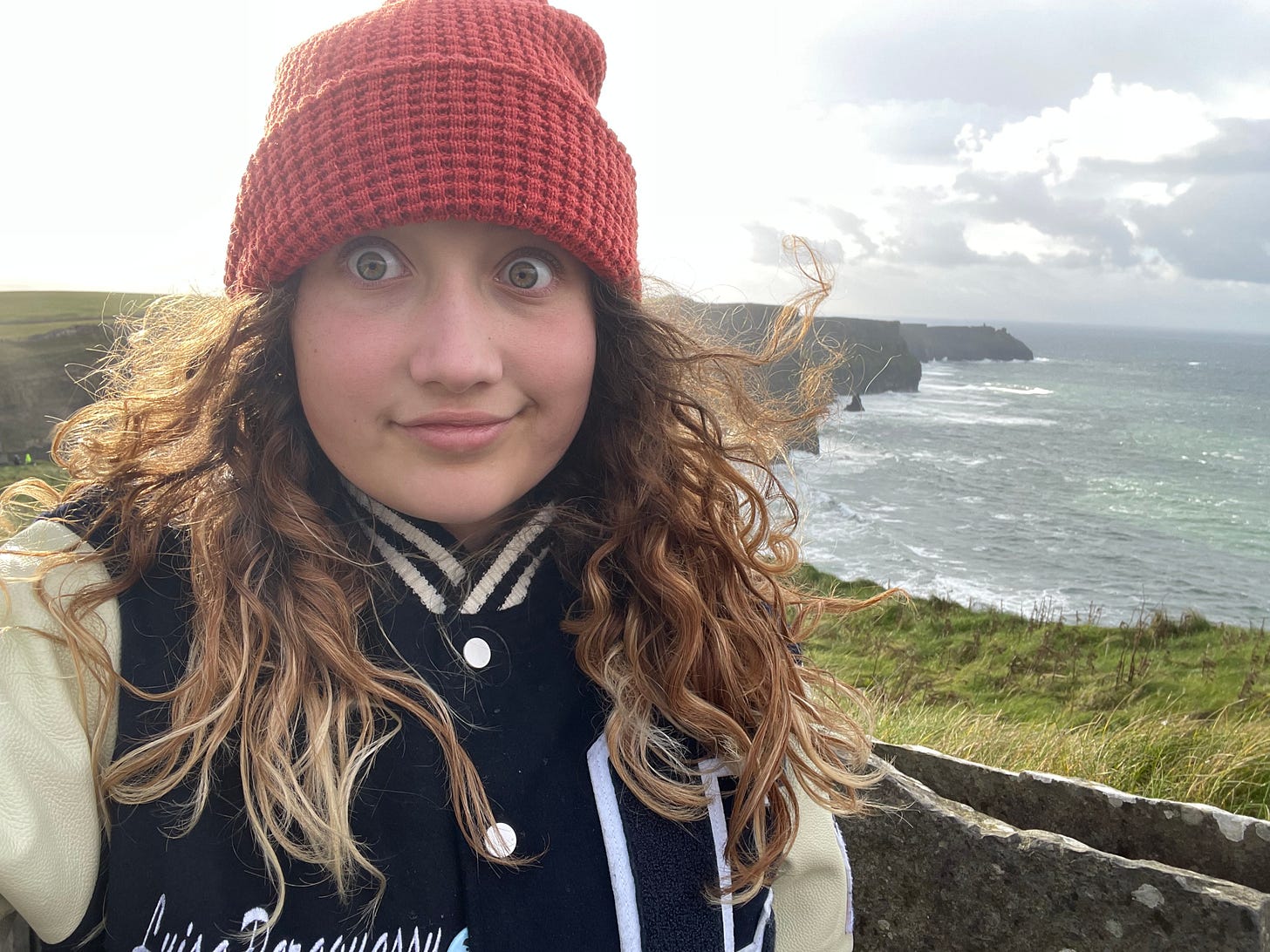Welcome to YourCultureHub.com!
Hello readers! We are so excited to have you join the WaterTheRoots newsletter! This letter will give you updates on new recipes, films, events, etc. that will help you get connected to your culture!
Hi, my name is Luisa Paraguassu! I’m a 16-year-old Brazilian-American living in the U.S. Growing up I was always a little hesitant to answer the question “Where are you from?”, I didn’t want to seem pretentious with a paragraph-long answer, but just saying “I’m American” or “I’m Brazilian” made me feel like I was cheating myself and my family a bit every time. In Brazil, I never felt Brazilian enough to claim the title, my family would always tease me calling me gringinha, but if I chose to just call myself American, I felt like I was discounting my entire family and heritage and ignoring them. After moving to Shanghai, China at 10 years old, this question got even more difficult to answer, and I felt even more pompous and annoying every time it was posed as I would retaliate with my infamous “Well actually I was born in … blah blah blah, etc. ”. Even with this minor inconvenience, not feeling fully from one place or another, stuck in constant limbo, I felt so lucky that I was at least pretty competent about what it meant to be from either place, even though I didn’t feel like it most of the time. I was raised speaking Portuguese, listening to Zeca Pagodinho, going to churrascos, and grew up learning English with my parents. I can recall my brother translating complex legal terms in the car from Portuguese to English when he was only 7 years old, as my mother (who was a lawyer in Brazil) sometimes struggled to find the exact translation. I watched frustrated as my highly intelligent parents have to reduce their lightening fast talking speed to a thousandth of the velocity their minds were racing at in order to get the right words out in English, only to often be perceived by the Americans as unintelligent or less capable. Nevertheless, I always felt so lucky that I spoke Portuguese, a language that I am realizing more and more may be one of the most beautiful tongues my ears have ever heard (but I may be slightly biased who knows). Whenever I read sonnets by Vinicius De Moraes and feel so thankful that I understand them intuitively, and don’t need to translate each word in my head, and just soaked up the beautiful words like a sponge.
It took me a long time to realize how much of a blessing such an upbringing truly was. With my fusion of Brazilian and American, I got to experience the beautiful sounds and sights of Rio De Janeiro while visiting my grandmother, and also feel the calming Iowan wind on my shoulders as I sat in corn fields outside my house in the United States. My dad especially never shied away from introducing us to both worlds, he showed us his favorite Brazilian artists along with his favorite American ones, even though he spent most of our childhood realizing he had been singing all of his favorite lyrics wrong now that he spoke English. It was a sullen day when he realized his favorite Van Halen song “Jump” was in fact not saying “MAXWELL JUMP!”, something he had always so deeply pondered, wondering “Who is this Maxwell?”. Of course, there were instances where the Latino experience in the United States proved to not be the most gratifying experience, but for the most part, I felt so lucky that I was from such a beautiful culture.
However, I know so many people today who unfortunately lost ties to their home language or homeland for whatever reason. Perhaps their parents wanted to immerse them into American culture as quickly as possible so they strayed away from teaching them their native language, or perhaps there were other incentives or motivations that were associated with the fams safety that prevented them from embracing their culture. There are so many reasons why children grow up not speaking their parents’ language or knowing much about their parents’ or grandparents’ culture, and the stigma or assumption that the family was “lazy” or did not care about maintaining cultural ties is simply destructive and must end. Shaming families for whatever reasons they may have had is simply wrong, and does nothing to reunite children with their roots. This is why I wanted to create CultureHub.com. I want it to serve as a way to water the roots of kids who identify as multicultural or first-generation, or for absolutely anyone who is interested in learning about other cultures. The world is overflowing with beautiful cultures and experiences and it is essential that we share them.
Furthermore, we would like to build a respectful, supportive, and educational community here. Where all experiences are welcome and encouraged to be shared. We hope this can be a place where first-gen and multicultural kids can meet and learn about their heritage and reconnect with their past. Here you can learn from first-gen kids like myself and several of my amazing friends about where you come from. Unfortunately, we don’t currently have access to every single country out there, but this is a dream in the making! We hope you support and follow us to reconnect with your culture and learn about the vibrant, beautiful, and inspiring cultures that exist outside these walls of comfort we confine ourselves. Hopefully, all first-gen and multicultural kids can learn here that your identity is the new one that you’ve created by purely existing, you don’t need to fit in a box of “Brazilian” or “American” or even “Brazilian-American” for instance, you’re just you, and being you is more than enough. Thank you!




